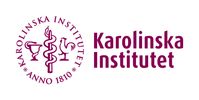Unique stem cell brittle-bone study starts
[PRESS RELEASE 12 October 2015] A study is to be conducted for the first time involving the transplantation of stem cells into unborn babies with the brittle-bone disease osteogenesis imperfecta, which causes repeated fractures often before birth. The study is to be coordinated by Karolinska Institutet but to be run as a collaboration between several leading European research centres and companies.
Babies born with the severe form of osteogenesis imperfecta, or congenital brittle-bone disease, are often seriously ill. Repeated fractures in all parts of the skeleton give rise to physical disabilities, postural abnormalities, and stunted growth. The child's breathing and pulmonary function can also be affected with the narrowing of the rib cage. There is currently no cure. Collagen is a thread-like protein found in bone that has a similar reinforcing function to iron rods in concrete. Since the disease is caused by an inability of the developing body to form collagen, scientists at Karolinska Institutet have produced a special strain of stem cell, which when injected into the body of sufferers targets and strengthens the bone by producing collagen. Studies on mice have shown a positive response to the treatment, which has also been tried on a couple of children with the disease. ”The oldest child to have received the treatment is now 13 and is performing better than expected and is still growing,” says Cecilia Götherström, a researcher at Karolinska Institutet's Department of Clinical Sciences, Intervention and Technology. ”But we believe that we can improve the treatment for other patients by administering it to the unborn baby and again in repeated doses during the child's first years of life.” Dr Götherström will be leading the study, which will test the treatment on unborn babies. Thirty babies will be included in the study, half of whom will receive stem cells before birth, and half after. New treatments will then be done at six-monthly intervals over a period of two years to enhance the effect. The researchers will then assess the results by analysing the development of bones and counting the number of fractures that the children in both groups suffer and compare the results with children who have not been treated with stem cells. The ”Boost Brittle Bones Before Birth” (BOOSTB4) project will start in January 2016 and will be coordinated by Karolinska Institutet. Other participating research centres and companies include University College London, Great Ormond Street Hospital, London, the University of Leicester, Universitair Medisch Centrum Utrecht, Leiden University Medical Centre, Uniklinik Köln, Lund University, Cell Protect Nordic Pharmaceuticals AB, Nordic Health Economics, MedSciNet and Euram Ltd. The study will also include patients from other European countries. Funding has been obtained from several sources, including the Swedish Research Council (grant agreement number E0720901, € 1,760,000) and the European Union's Horizon 2020 research and innovation programme under grant agreement No 681045 (€ 6,608,752). For information, contact: Dr Cecilia Götherström, Associate Professor Department of Clinical Sciences, Intervention and Technology Tel: +46 (0)8-585 811 61 or +46 (0)70-471 23 00 Email: Cecilia.Gotherstrom@ki.se
Contacts
Contact the Press Office: ki.se/pressroom
Karolinska Institutet (http://ki.se/english) is one of the world's leading medical universities. Its vision is to significantly contribute to the improvement of human health. Karolinska Institutet accounts for over 40 per cent of the medical academic research conducted in Sweden and offers the country´s broadest range of education in medicine and health sciences. The Nobel Assembly at Karolinska Institutet selects the Nobel laureates in Physiology or Medicine.
Subscribe to releases from Karolinska Institutet - English
Subscribe to all the latest releases from Karolinska Institutet - English by registering your e-mail address below. You can unsubscribe at any time.
Latest releases from Karolinska Institutet - English
Long COVID biomarkers found – associated with respiratory problems30.4.2025 17:00:00 CEST | Pressmeddelande
Researchers at Karolinska Institutet have identified biomarkers in the blood associated with symptoms of long COVID, particularly severe respiratory disorders. The discovery can pave the way for future diagnosis and treatment. The results are published in the top-ranking scientific journal Nature Immunology.
Long COVID biomarkers found – associated with respiratory problems30.4.2025 17:00:00 CEST | Press Release
Researchers at Karolinska Institutet have identified biomarkers in the blood associated with symptoms of long COVID, particularly severe respiratory disorders. The discovery can pave the way for future diagnosis and treatment. The results are published in the top-ranking scientific journal Nature Immunology.
Higher cigarette taxes may improve childhood survival30.4.2025 00:30:00 CEST | Pressmeddelande
A higher tax on cigarettes in low and middle-income countries can help to reduce child mortality, especially amongst the poorest children, a new study led by researchers at Karolinska Institutet and published in The Lancet Public Health suggests.
New method reveals how the brain and inner ear are formed3.4.2025 20:00:00 CEST | Pressmeddelande
Researchers at Karolinska Institutet have developed a method that shows how the nervous system and sensory organs are formed in an embryo. By labelling stem cells with a genetic ‘barcode’, they have been able to follow the cells’ developmental journey and discover how the inner ear is formed in mice. The discovery, published in Science, could provide important insights for future treatment of hearing loss.
Fluoride in drinking water is associated with impaired childhood cognition7.3.2025 15:30:00 CET | Pressmeddelande
Elevated concentrations of fluoride can occur in well water, and in some countries, it is added to drinking water to counteract caries in the population. A study from Karolinska Institutet in Sweden now supports a few previous studies indicating that exposure to fluoride during the fetal stage or early childhood may impair cognition in children. The study is published in the journal Environmental Health Perspectives.
In our pressroom you can read all our latest releases, find our press contacts, images, documents and other relevant information about us.
Visit our pressroom